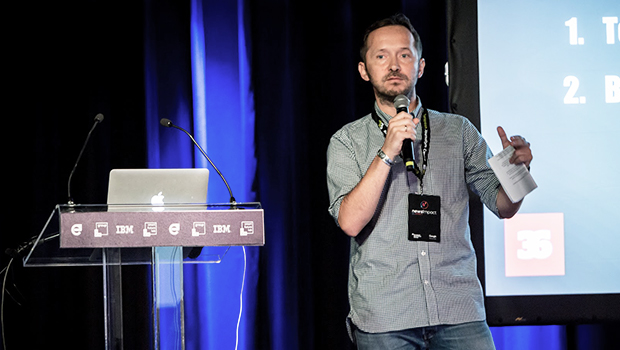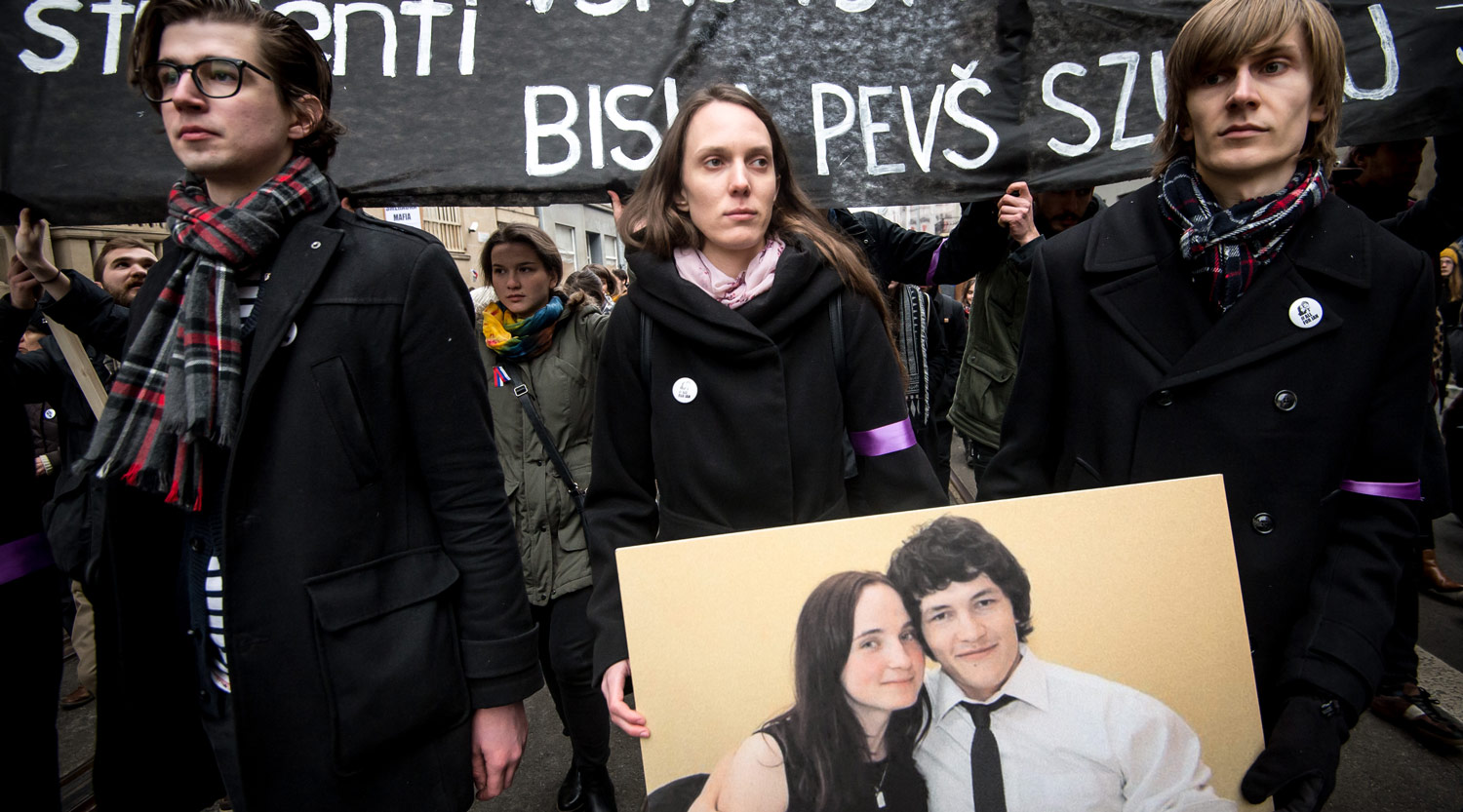International Consortium of Investigative Journalists member Sam Smyth is among several prominent victims of a remarkable Irish data-leak scandal that has shaken the nation’s media and political establishments.
Smyth works for the Irish Mail on Sunday and previously worked for the Irish Independent, Sunday Independent and Sunday Tribune.
He is one of Ireland’s most decorated journalist and has built his reputation upon investigations into business and political scandals.
ICIJ first spoke with Sam Smyth in May 2018 about events that have left him feeling ‘betrayed’ and ‘sickened’ fearing for the anonymity of his sources and dismayed over media freedom in his homeland. Today, we’re updating the Q&A with the latest news from Ireland.
What happened?
My former employers Independent News Media (INM), Ireland’s largest newspaper group and publishers of the national, daily Irish Independent, have potentially allowed access to every email and communication I sent and received over two decades of being an investigative journalist.
How has this made you feel?
It feels like someone has stolen my personal diaries. I felt nauseous when I learned what is alleged.
Who has made the allegations?
The claims have been made by the State’s corporate watchdog, the Office of the Director of Corporate Enforcement (ODCE), which is now seeking the appointment of inspectors to investigate INM.
What is known about the breach?
It’s complex but the allegations are that the emails of at least 19 people, including journalists, lawyers and company directors, were taken from INM’s premises in 2014 – on magnetic tapes used as a back-up for the company’s IT system – to be ‘interrogated’ offshore by at least six companies. So, the data was being combed for what the ODCE says in an affidavit were “email hits” against eight of the 19 names, including those of several journalists.
Do we know why the data was being combed? What information was being sought?
ODCE head Ian Drennan says the watchdog has not been able to establish the precise purpose of the data search, but says he wants to establish whether journalists’ email, or other data, was accessed and, if so, by whom and for what purpose. Drennan also says that it is a “striking feature” that INM’s board appears not to know why.
How is Ireland’s richest man, Denis O’Brien, tied to the story?
The roots of the story lie in a boardroom clash over an apparent attempt to sell a news radio station that was owned by O’Brien to INM.
O’Brien holds a substantial stake in INM, and it was INM’s former chairman, Leslie Buckley, who ODCE says ordered the tapes to be ‘interrogated.’
The former chief executive of INM, Robert Pitt, made a whistleblower’s protected disclosure to the ODCE over the price allegedly sought in the aborted radio deal – and as a result of that disclosure, the suspected data leak was revealed.
The ODCE claims the data backup tapes were taken in October 2014 and shared with at least six companies external to INM.
The ODCE also claims two invoices associated with the data interrogation were discharged by Blaydon Limited, a company owned by O’Brien.
It alleges that about 60,000 euros was paid by Blaydon Ltd to Trusted Data Solutions, an American company based in Wales.
Why does the name Blaydon seem familiar?
Blaydon Limited featured in the Paradise Papers. Documents in the leak stated that the company’s bank accounts in Ireland had up to 2 million euros passing through them at times.
Is there a political dimension to these events?
The media’s ability to freely investigate and report is a principle that must remain sacrosanct. So, yes, there is an important one.
Ireland’s prime minister, or Taoiseach, Leo Varadker, has spoken about the importance of a free media. Now his credibility relies upon him supporting a transparent inquiry into the INM scandal.
What do you want from INM?
I have written to INM asking them to candidly explain what happened to my information? Who was it made available to? And for what purpose? I have heard nothing from them.
What has Buckley said about the scandal?
According to the ODCE, Buckley claimed the data interrogation was part of “a cost reduction exercise.”
Does the ODCE accept this explanation?
Drennan says he is not convinced and wants the issue probed further.
Complicating the matter even more, INM is seeking a judicial review to the ODCE’s application to have corporate inspectors appointed to the company.
Have either Buckley or O’Brien commented publicly on the controversy?
Buckley issued a statement saying he planned to defend his position robustly. A spokesman for O’Brien told the Irish Independent he was not commenting.
But the Irish High Court has heard that O’Brien wrote to Drennan, the head of the ODCE, accusing him of leaking information about the data breaches.
O’Brien said he would hold Mr Brennan “fully and personally responsible” for leaking information that O’Brien claims is damaging to his reputation.
Drennan and the ODCE rejected the allegation.
The whole thing sounds pretty damaging to INM. Does it threaten the future of the company?
INM’s chief executive Michael Doorly has warned that there will be significant costs for the company if inspectors are appointed.
But he has given INM’s 815 staff assurances that their jobs are not under threat.
August 2018 Update:
A lot has happened in the Irish data scandal Sam since we last spoke in May. Where are things up to?
According to documents lodged with the High Court in Dublin, IME‘s former chairman Leslie Buckley backed off sacking the editor-in-chief Stephen Rae for fear he would reveal incidences of editorial interference.
A memo of a heated meeting in 2016 between then chairman Buckley and then INM Chief Executive Robert Pitt where they discussed the removal of Rae, was included in the court documents.
Pitt wanted to remove Rae to cut costs and said that Buckley was “worried” that Rae could retaliate by making “public interactions they had where Leslie had called on Stephen to have content removed from the papers”.
Buckley was a nominee of billionaire and main INM shareholder O’Brien. What has been the fallout for them – and for Rae, too?
Buckley resigned in March when the ODCE was investigating the company. Rae left INM in May.
In April, O’Brien accused the corporate watchdog of leaking against him. Drennan rejected the claim.
Meanwhile, the court documents reveal that Pitt said Buckley was “very clear” that Rae had helped him control the editorial tone and content of the publications owned by INM.
The company’s chief financial officer Ryan Preston supported Pitt’s account, recalling Buckley talking about ringing Rae on Saturdays to “get articles removed from the paper”.
The Sunday Times’ Mark Tighe reported that the ODCE sent an urgent letter to INM saying it had received information that the company was deleting records of communications between Rae and O’Brien.
Rae’s departure came less than six months after his appointment to the European Commission’s high-level expert group on “fake news”. What is the group’s purpose?
The group was established to advise the European Commission on all issues relating to the spread of false information across traditional and social media.
Commenting at the time of his appointment, Rae said: “We have seen the widespread damage that can be done by the willful dissemination of false information on social media platforms.
“I look forward to meeting and exchanging views with my colleagues on the expert group as we advise the European Commission on dealing with this complex challenge, which has major social and political consequences for citizens.”
Have the court claims have cast Rae’s appointment in a new light?
Questions about Rae representing Ireland on the “fake news” expert group in the European Commission are expected to be asked in the Irish parliament when it returns from its summer break later this month (September).



